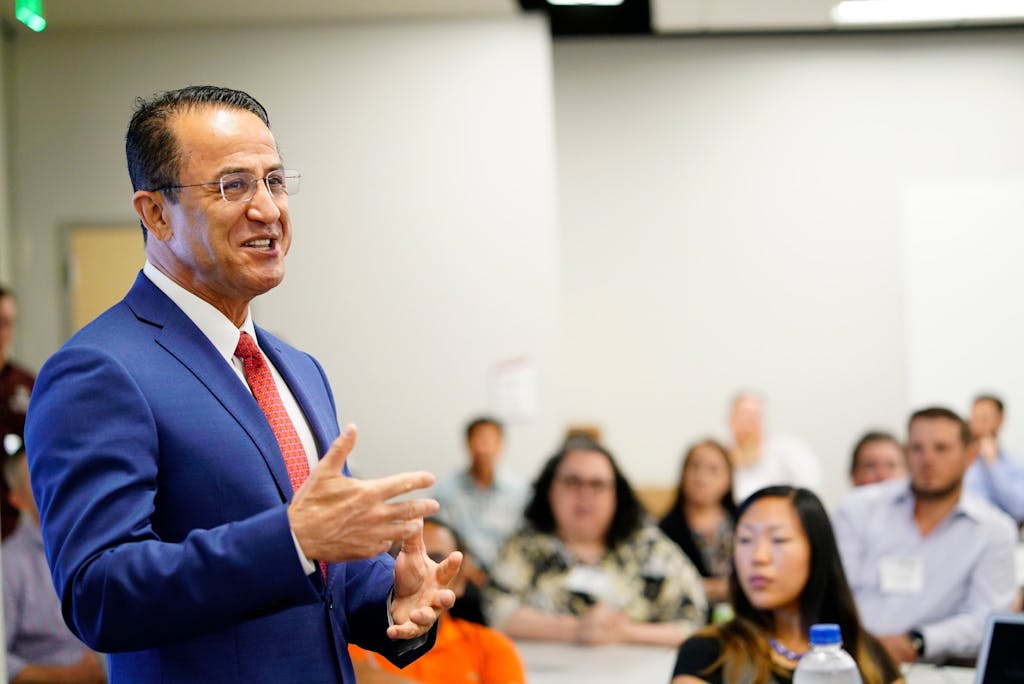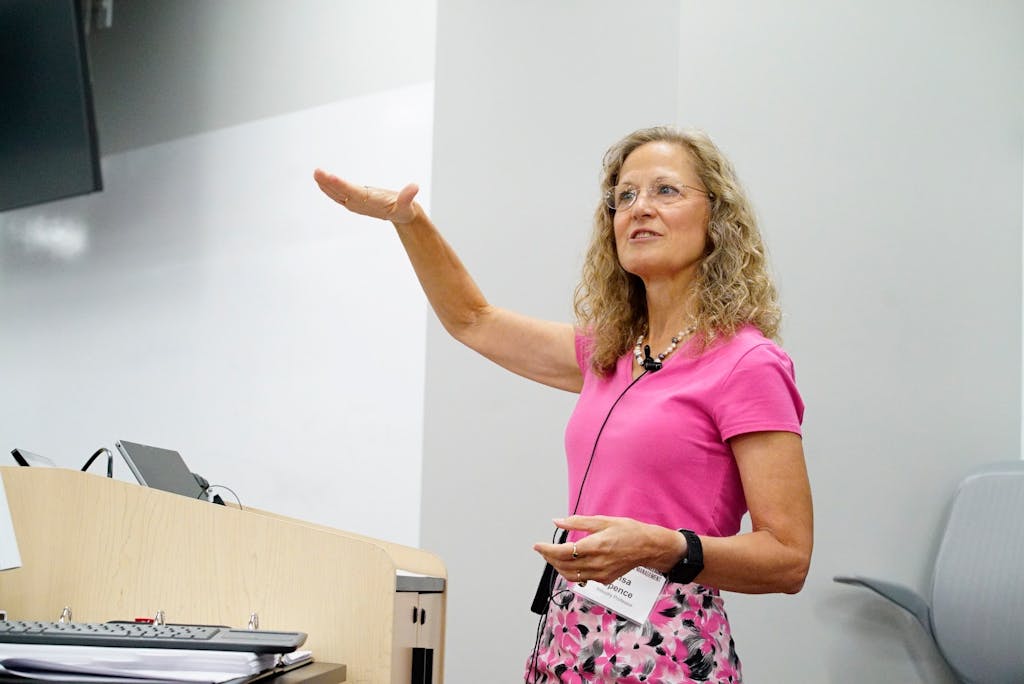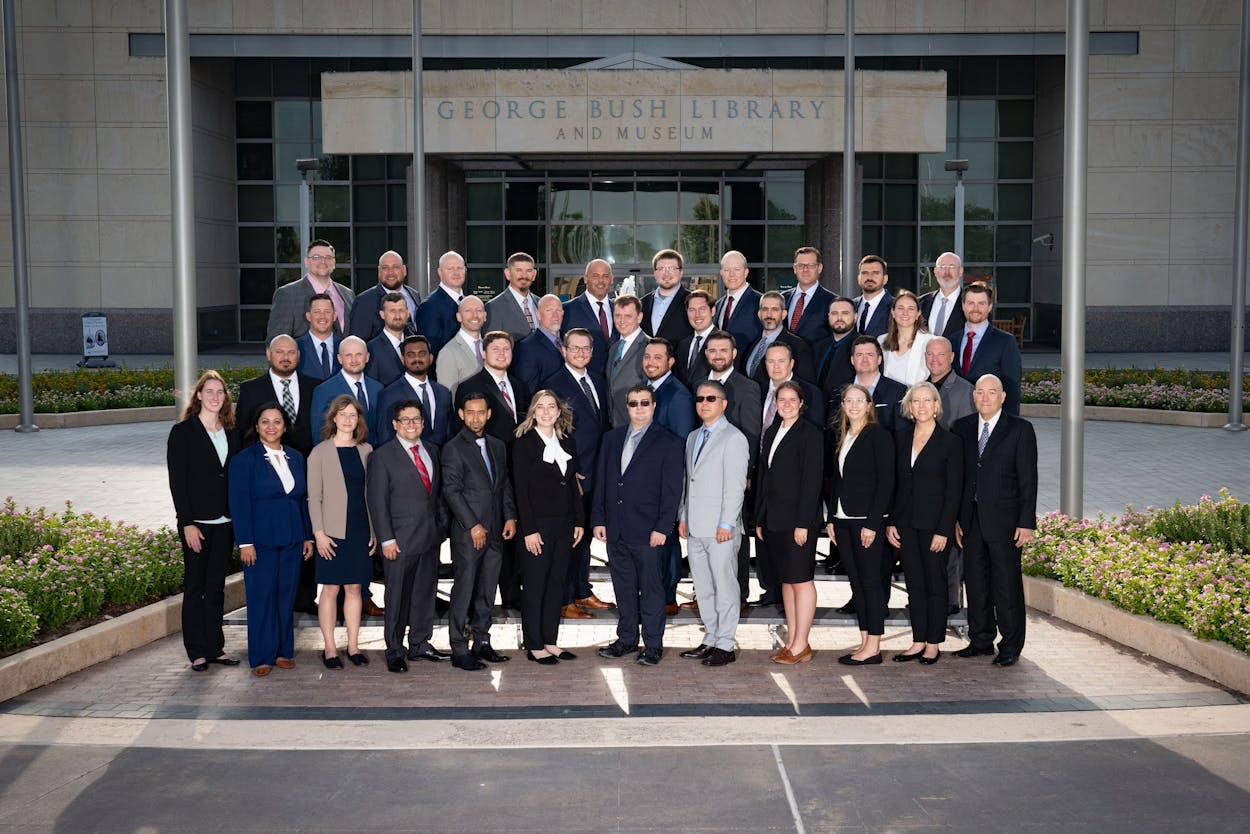McKinsey Genzer’s career path has been anything but predictable. Originally from Maryland and planning to pursue a medical degree, a conversation with a mentor surgeon led her to pursuing a different, more technical path.

That path led her to ExxonMobil in Houston, working as an IT Auditor.
“What I do involves working in cyber security,” Genzer says. “So if you’re familiar with the Colonial Pipeline Hack that happened a couple years ago, my job is to travel around the world and make sure our facilities cannot get hacked like that.”
But if one facet of McKinsey’s path has been consistent, it is that she was always meant to be a leader. So, like many in her position, she began looking into MBA programs. Instead, she found Texas A&M University’s Master of Engineering Technical Management.
Designed for working professionals, Texas A&M’s Master of Engineering Technical Management (METM) equips graduates for the next step in their technical careers.

Dr. Ben Zoghi, METM’s Founding Director, says, “Our Master of Engineering in Technical Management was created at the request of a team of industry leaders who identified a deficit in engineering leaders in their companies who also had the strategic and tactical skills to fully understand the business environment.”
McKinsey, among other METM students, chose METM over an MBA or MS degree due to its unique nature of combining business leadership topics with a technical and engineering context.
“Finding a degree that would help me be a better leader in a technical organization while also having the aspects of project management that will benefit me in my career seemed to fit me better than a traditional MBA,” McKinsey says.
METM is designed for future technical leaders like McKinsey. The typical METM student can be described as:
- An early to mid-career professional.
- Ambitious and looking to advance into management.
- Having an undergraduate STEM degree or working in a related field.
For one week each year of their program, METM students travel to Texas A&M University’s campus to participate in Residency Week. During this week, students connect face-to-face with faculty and their fellow classmates, hear from guest speakers, and develop new perspectives on their leadership style. They then return home to finish the rest of their courses online and asynchronously.
The online feature of the METM degree not only allows students to continue working while they pursue their masters, but also encourages the integration of their career by focusing on current industry best practices that students can immediately apply to their job.

“I structure my course based on two things,” says Dr. Lisa Spence, a retired NASA engineer and METM’s professor of Managing Technical Teams. “One, it’s based on developing communication skills across a range of the types of communication that you do as a leader in a technical workforce. And then it’s also based on my own personal experience–things that I did or were done to me, as well as the observational experiences that you have when you work for 32 years in an organization as large and diverse as NASA.”
Dr. Spence, along with METM’s other top industry faculty, bring real-world knowledge into their classroom. Coming from NASA, Boeing, Lockheed Martin, and more, METM faculty are eager to share with students their management expertise from years of working in industry.
“A lot of times in the technical workforce, people are promoted to leadership positions because they have the most knowledge or the most skill in a very specific technical area,” Dr. Spence says of the need for leaders in the technical workforce. “But people don’t necessarily take into account what it actually takes to be a leader.”
With METM, students graduate with the knowledge to:
- Manage a diverse team of technical professionals.
- Use EQ skills to communicate with customers and colleagues from technical and non-technical backgrounds.
- Construct and put in place corporate strategic technology plans.
- Manage resources and assets.
- Apply leadership skills that create a lasting and effective change in technical organizations.
Technical industries and organizations are hungry for qualified leaders. On one hand, there are leaders who understand the technical aspects of these organizations. On another, there are leaders who understand the people. And then there are leaders who understand both. Those are the ones technical organizations will build their future on. With Texas A&M’s Master of Engineering Technical Management, McKinsey Genzer and others like her are taking the steps to become the technical leaders of the future.







